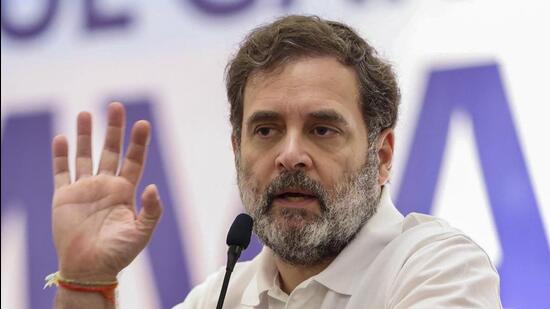Pune court allows Rahul Gandhi’s plea to convert Savarkar defamation case into summons trial
The court emphasized that summary trials are not designed to accommodate such in-depth scrutiny, and given the nature of the dispute, a full-fledged trial would better serve the interests of justice
On Monday, a special court in Pune allowed Congress leader Rahul Gandhi’s plea to convert the ongoing criminal defamation proceedings against him from a summary trial into a summons trial. The case is related to Gandhi’s alleged defamatory remarks against Hindutva ideologue Vinayak Damodar Savarkar during an event in London on March 5, 2023.

The court of Judicial Magistrate (First Class) Amol Shinde, designated for cases involving MPs and MLAs, held that the dispute raised “complex questions of fact and law,” particularly related to historical narratives, and observed that a more detailed trial procedure would be necessary to allow examination of evidence and enable both parties to cross-examine witnesses thoroughly.
“No prejudice would be caused to either the accused or the complainant if the case is tried as a summons case,” the court noted. “The complainant is required to prove the contents of the alleged speech made by the accused at the gathering of diaspora in London. The main issue involved in this case will revolve around historical facts on which the parties are at variance.”
The court emphasized that summary trials are not designed to accommodate such in-depth scrutiny, and given the nature of the dispute, a full-fledged trial would better serve the interests of justice.
“The major part of evidence would comprise material of historical nature, entailing academic enquiry,” the court said, pointing out that the complainant’s claims on Savarkar’s role in India’s freedom struggle had been challenged by the accused. “Therefore, in my view, it is undesirable to try this case summarily.”
The order further clarified that Section 260(2) of the CrPC allows a magistrate to convert a summary trial into a summons trial during the course of proceedings if it appears necessary. “In this case, the accused has to lead detailed evidence and has to cross-examine the complainant’s witnesses thoroughly,” the court held.
The offence in question—defamation under Section 500 of the IPC—is punishable with simple imprisonment of up to two years or fine or both. As per the Criminal Procedure Code, such cases fall under the summons category, further strengthening Gandhi’s plea for converting the trial.
Rahul Gandhi’s plea, filed through advocate Milind Pawar on February 18, argued that the case required the court to examine the historical contributions of VD Savarkar, which the complainant -- Satyaki Savarkar, the great-grandson of the Hindutva leader—had invoked in his complaint. Gandhi contended that he must be allowed to present historical evidence to support his remarks, which he insists were critical but based on his interpretation of history.
Satyaki Savarkar had objected to the plea, arguing that the speech in question held no historical significance and that the trial should remain focused solely on the defamatory content. He accused Gandhi of attempting to shift the focus from his allegedly objectionable remarks to a broader debate on Savarkar’s legacy.
The court, however, supported Gandhi’s argument that the nature of the case necessitated a summons trial.
The decision comes nearly two months after the same court granted Rahul Gandhi permanent exemption from personal appearance in the case. Gandhi, who had appeared via video conferencing earlier, was granted temporary bail on a personal bond of ₹25,000. His legal team had also submitted that his presence in Pune posed a security risk, citing the city’s association with Nathuram Godse and past assassinations of Gandhi’s family members.






